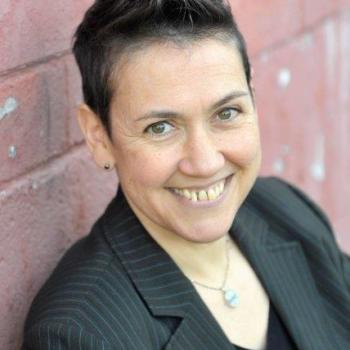Embodied Storytelling: An Accessible Approach to Re-storying in the Recovery Process
This 90 minute workshop is an introduction to the framework of embodied storytelling, a blend of personal narrative and somatic exercises that allows for extemporization and exploration with one’s story in a safe context. First developed in the context of adolescent residential substance addiction treatment, embodied storytelling has been used in a variety of settings with people in recovery, people who use drugs, clinicians, treatment staff, and in groups led by people with lived experience of addiction and homelessness in peer community settings such as recovery cafes. Drawing from sources such as drama and narrative therapy and trauma informed care, embodied storytelling is nevertheless a non-clinical modality that does not require professional facilitation and can be incorporated by researchers in settings such as community-based and participatory research.
Storytelling is a central element in recovery culture and the healing process across many modalities. Its functions include re-authoring (creating more positive accounts of past and current selves), identity formation, externalizing problems, and establishing empathy, validity, and connection. Weaving embodiment into storytelling exercises increases overall accessibility, lowers barriers that many people encounter when first telling their stories in shared spaces, and allows participants who may struggle to articulate themselves verbally easier entry into the shared process.
The facilitators will lead workshop participants through the teaching and learning of simple games based in creative expression and play, followed by collective reflection on the experience of community that develops through the process. Games include the “clapping game” (involving rhythm, imitation and synchronization), “spectrum” (participants distribute themselves across a space to express degrees of agreement with a statement), and “sound and motion” (participants offer a sound and movement which is echoed back to them by the group). These exercises mobilize recognized mechanisms of therapy and mutual aid such as validation, externalization, and universalization in a trauma-informed format safe for trained non-clinicians to utilize. Participants will leave with a format and repertoire of exercises that can be easily reproduced in new contexts.
This framework is especially suited for peer settings and with groups experiencing forms of institutional marginalization because of its collective and egalitarian structure that allows for the development of peer leadership and group facilitation skills.
The workshop will be facilitated by people with lived experience: Meghann Perry, embodied storytelling creator; and Dr. Jon Soske, who will present data from a recent evaluation of a 5-week facilitated embodied storytelling group at a Recovery Cafe in Lowell, Massachusetts, and discuss how and why this group has been able to continue meeting regularly for ten months without the assistance of an outside facilitator.
